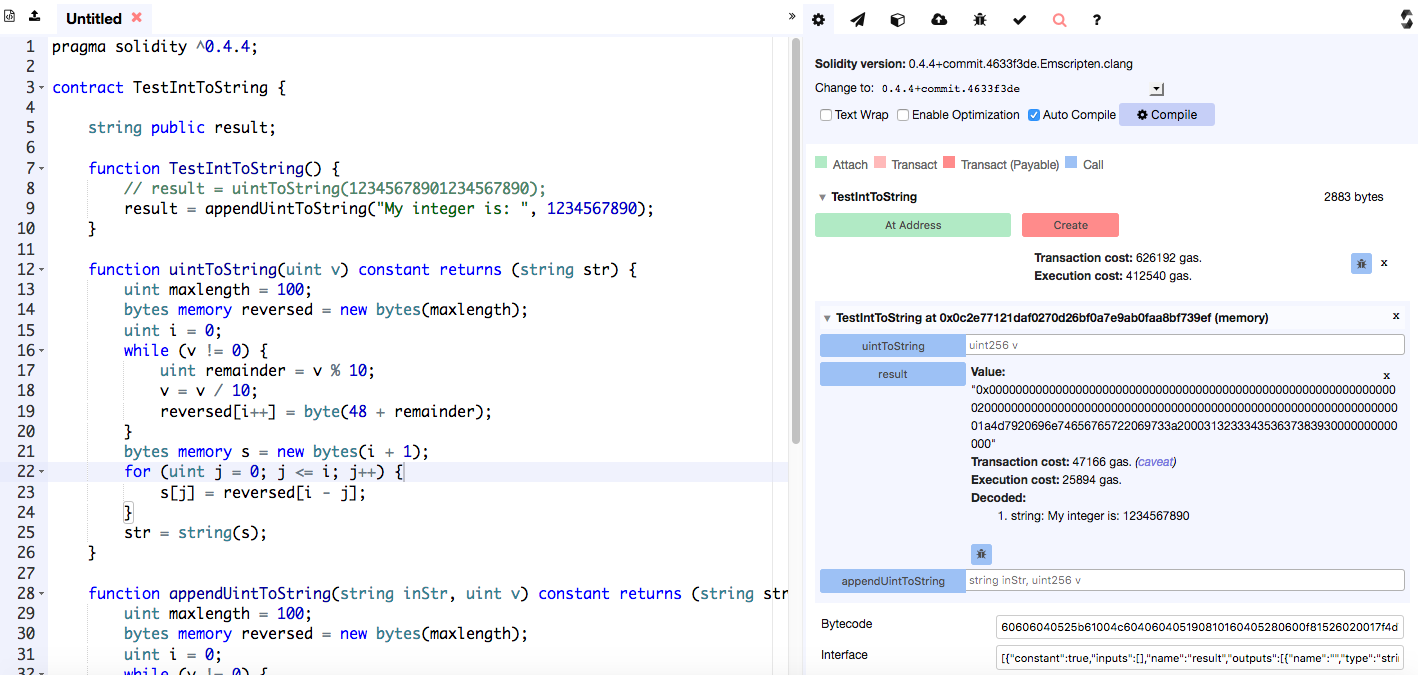function strConcat(string _a, string _b, string _c, string _d, string _e) internal returns (string){
bytes memory _ba = bytes(_a);
bytes memory _bb = bytes(_b);
bytes memory _bc = bytes(_c);
bytes memory _bd = bytes(_d);
bytes memory _be = bytes(_e);
string memory abcde = new string(_ba.length + _bb.length + _bc.length + _bd.length + _be.length);
bytes memory babcde = bytes(abcde);
uint k = 0;
for (uint i = 0; i < _ba.length; i++) babcde[k++] = _ba[i];
for (i = 0; i < _bb.length; i++) babcde[k++] = _bb[i];
for (i = 0; i < _bc.length; i++) babcde[k++] = _bc[i];
for (i = 0; i < _bd.length; i++) babcde[k++] = _bd[i];
for (i = 0; i < _be.length; i++) babcde[k++] = _be[i];
return string(babcde);
}
function strConcat(string _a, string _b, string _c, string _d) internal returns (string) {
return strConcat(_a, _b, _c, _d, "");
}
function strConcat(string _a, string _b, string _c) internal returns (string) {
return strConcat(_a, _b, _c, "", "");
}
function strConcat(string _a, string _b) internal returns (string) {
return strConcat(_a, _b, "", "", "");
}

